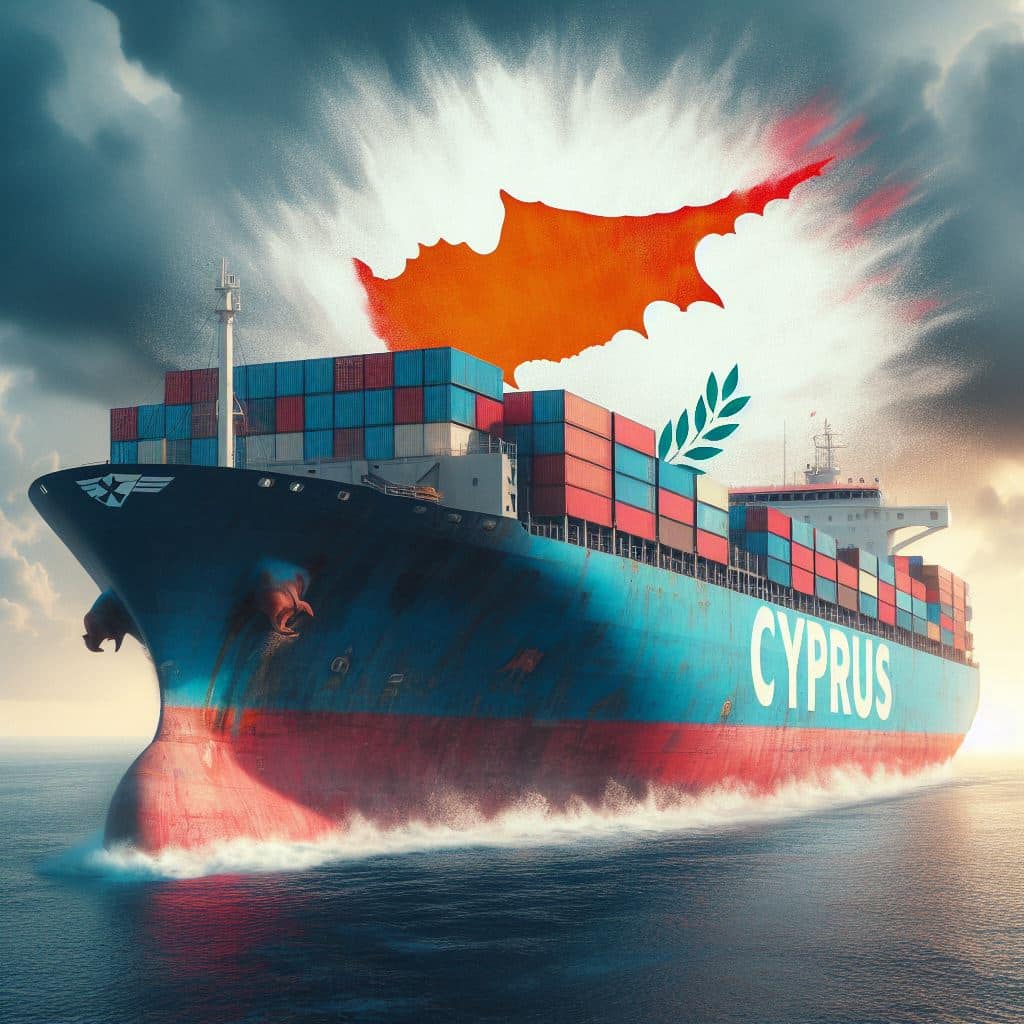Interest in maritime studies has been steadily growing in Cyprus, mirroring the island’s long-standing relationship with the sea and the strength of its shipping industry.
At the Cyprus University of Technology (Tepak), the Department of Shipping has rapidly become one of the country’s most popular academic choices, reflecting both the sector’s prospects and Limassol’s position as a major maritime hub.
The department’s coordinator, Professor Photis Panayides, speaking to Lemesos TV, said that demand for the new bachelor’s in shipping studies, introduced in 2023, has surpassed all expectations.
As he mentioned, the programme now ranks among the top twenty most sought-after degrees across all public universities, a result largely driven by the concentration of shipping companies based in Limassol and the career opportunities they create for young people.
He explained that Cyprus’ identity as an island nation naturally plays a role. Surrounded by the sea, he said, Cypriots have always had a connection with maritime life, and that connection is now being translated into education and employment.
The Tepak programme, however, focuses on the business and management aspects of shipping rather than seafaring.
As Panayides explained, maritime studies at the university centre on economics, administration and logistics, preparing graduates for roles within companies, ports, or broader trade and transport networks.
“It’s not about becoming a sailor,” he noted. “Graduates can work in any sector of the maritime industry, and often beyond it.”
Career prospects, he said, are one of the key reasons behind the rising interest.
According to university data, most graduates find employment within the first year of completing their studies, typically within the maritime sector itself.
He mentioned that working conditions are particularly good, often superior to those found in other industries, and that the field offers room for advancement and long-term growth.
Although Tepak has offered maritime-related courses since 2008, the creation of a dedicated department two years ago marked an important milestone.
It now provides accredited undergraduate, postgraduate and doctoral programmes, offering Cypriot students a complete academic path in shipping without having to study abroad.
Reflecting on his own experience, Panayides said he had studied in England before starting an academic career that later took him to Hong Kong.
“I’ve always been in academia,” he added, “though I maintain close cooperation with shipping companies, it’s one thing to work in the industry and another to collaborate with it.”
The department has also launched a National Shipping Student Competition, aimed at introducing pupils from across Cyprus to the world of shipping.
Open to second and third year lyceum students, the competition will take place over two consecutive Saturdays, on November 8 and 15.
On the first day, participants will attend four short lectures delivered by Tepak academics, covering introductory topics in maritime studies, while the following week they will complete a one-hour multiple-choice assessment.
As Panayides explained, the initiative is less about winning than about awareness.
“The goal,” he said, “is to bring pupils to the university, let them see the facilities, meet the professors, and discover what the maritime field really involves.”
Through such efforts, Tepak hopes to familiarise younger generations with the industry and to show them the possibilities it offers.
He observed that interest in maritime education now begins much earlier than in the past.
“In recent years, we’ve seen students say from their first years of secondary school that they want to study maritime subjects,” he said, adding that this shift is closely linked to the outreach activities of the Cyprus Shipping Chamber (CSC) and the many companies operating locally.
Even so, he admitted, awareness remains limited compared with traditional professions such as medicine or engineering, a gap the university is actively working to bridge.
To this end, Tepak has already begun visiting schools to speak directly to pupils about maritime careers. As he mentioned, such visits give students the opportunity to understand what the industry entails and to recognise its potential.
“It’s a growing and promising field,” he said, “offering excellent prospects for anyone with an interest in economics, management or international business.”
Family influence also plays an important part. Many students, he noted, come from households already connected to the sea.
“There are numerous cases where a parent works in the shipping sector and the child follows,” he said. “In my case, my father was a customs broker, and I grew up near the port, so the decision to stay close to the sea came naturally.”
Today, the department includes six specialised professors, each contributing expertise across different areas of maritime economics and management.
Panayides encouraged students and parents to reach out for guidance. “We’re always available,” he said. “Anyone interested can visit, call or email us, we’re happy to provide details about the courses and the professional opportunities available.”
Entry to the programme remains competitive but achievable. This year’s admission scores ranged between 15 and 19.
“It’s not impossible,” he said. “It simply requires effort, and that’s how it should be. We maintain high standards because we want our graduates to make us proud when they go out to work.”
Many of Tepak’s graduates are now employed in senior positions within leading shipping companies.
As he mentioned, nearly all find work soon after completing their studies. “At this year’s Maritime Cyprus conference,” he recalled, “I met former students from both England and Tepak, some from twenty years ago, others from just a few years back. Seeing them succeed in the shipping industry gives me real satisfaction.”
He added that shipping is not only financially rewarding but also an environment where people feel valued. “It’s a pleasant and professional atmosphere where employers genuinely look after their staff,” Panayides concluded. “Anyone who works in this industry can confirm that.”






Click here to change your cookie preferences